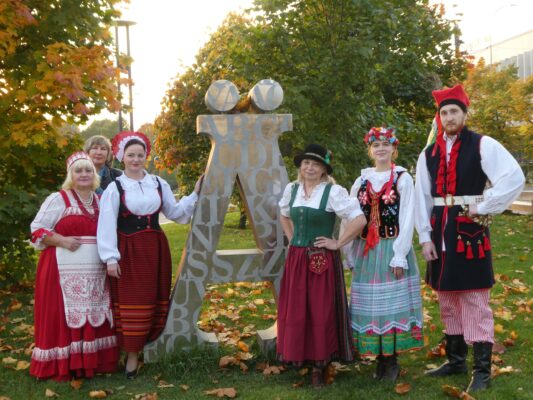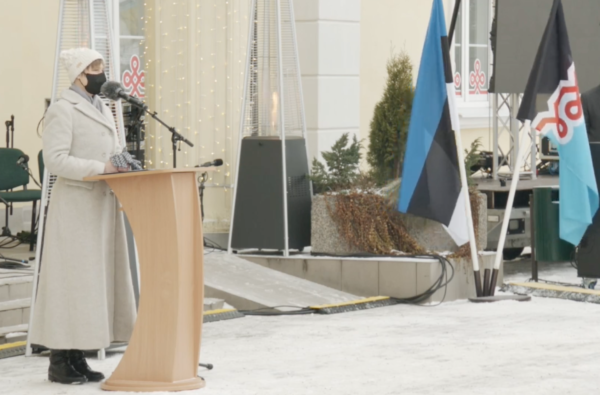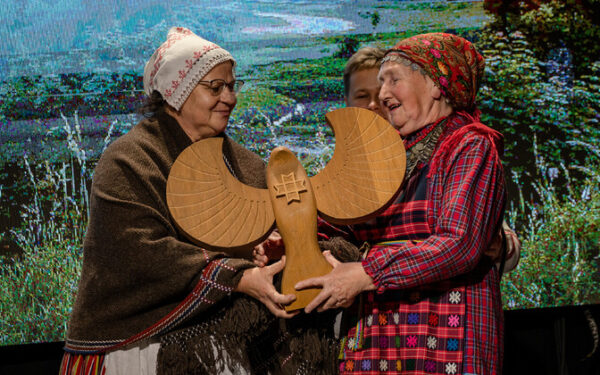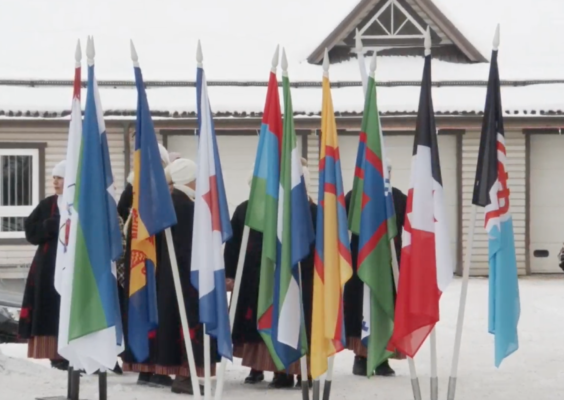Mulgimaa takes centre stage as Estonia embraces its Finno-Ugric family
Abja-Paluoja, the capital of Estonia’s historic Mulgimaa region, has become the Finno-Ugric Capital of Culture 2021
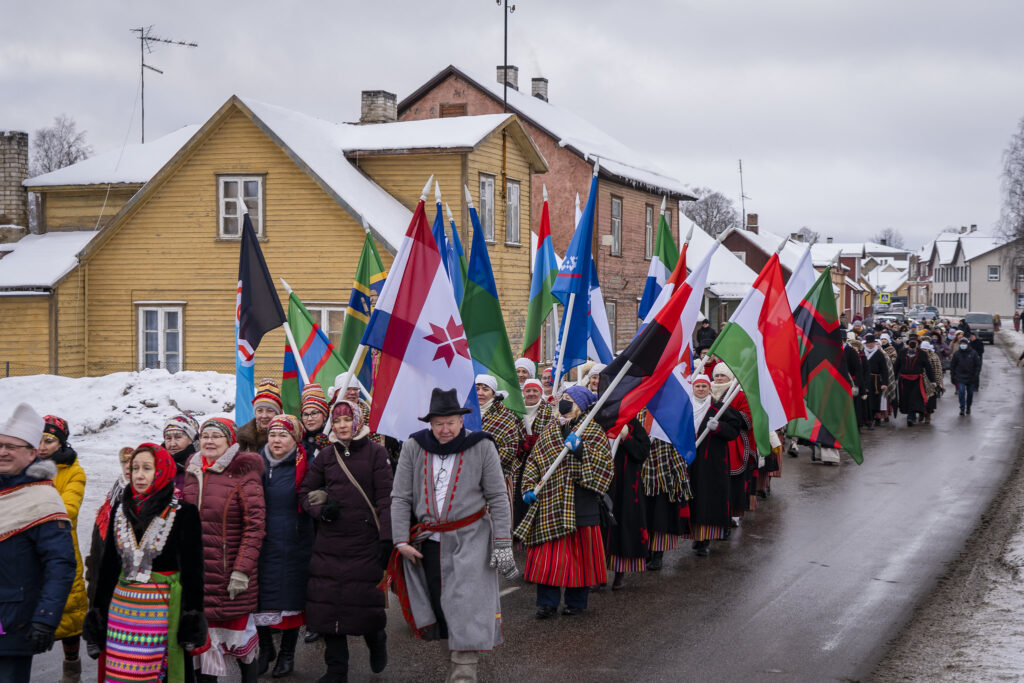
By Adam Rang / estonian world
Adam Rang, who is currently writing a book about Estonian sauna culture and its origins among Finno-Ugric peoples, attended the ceremony and reports on why it matters.
It had all the grandeur, if not the scale, of a major diplomatic gathering. There were presidents and senior politicians, rows of flags, international guests, television cameras and translators providing live commentary for audiences tuning in from around the world.
The location was the quiet south Estonian town of Abja-Paluoja where, on Saturday, 13 February, around 100 people gathered in freezing temperatures proudly wearing their folk dress to witness the town receive the title of the Finno-Ugric Capital of Culture 2021.
Abja-Paluoja is the capital of Estonia’s historic Mulgimaa region whose residents, known as Mulks, have their own distinctive Mulgi dialect and culture. The first Estonian-owned farms were developed here from the early 19th century and, as a result, it was once one of the wealthiest parts of Estonia. The Mulk men are iconically depicted wearing long black robes.
During the ceremony, a symbolic wooden bird, known as the Tsirk, was handed over to the town. It was then paraded through the streets and placed in the window of a local bookshop. Each of its feathers represent a Finno-Ugric nation and its wings are spread as if about to take flight in order to represent the hope for their future.
A greater focus on preserving the local dialects
Even the language we now call Estonian was one of several dialects of Estonia. Before the Soviet occupation, language standardisation was considered essential for nation-building. This resulted in the standardisation of the north Estonian dialect spoken in Tallinn.
While preservation of the Estonian language remains a cornerstone of the Estonian state to this day, its policy towards dialects has been reversed since the restoration of independence. Dialects such as Mulgi are now officially encouraged and supported, including through local media, arts and schooling in local dialects.
Speaking during the ceremony, the Estonian president, Kersti Kaljulaid, said there should be even greater focus on the preservation of the local dialects, such as the Mulgi language. Võro and Seto have flourished most over recent years, the president noted, but she also hoped to see textbooks in all Estonian dialects. Kaljulaid also reminded those watching that Estonians at the UN have always stood up for the rights of indigenous peoples everywhere.
The former Estonian president – and local Mulgi resident – Toomas Hendrik Ilves also attended in his role as Patron of the Mulgi Institute. Ilves praised the survival of Finno-Ugric peoples, despite noting they have all been pressured by their larger neighbours to abandon their culture and language.
“I call upon all of us to make efforts to get to know our kin,” Ilves asked the attendees and those watching online. “Then we will feel more confident, more secure and stronger. Then we will have the knowledge that our languages and songs will sound for centuries.”
Read more
